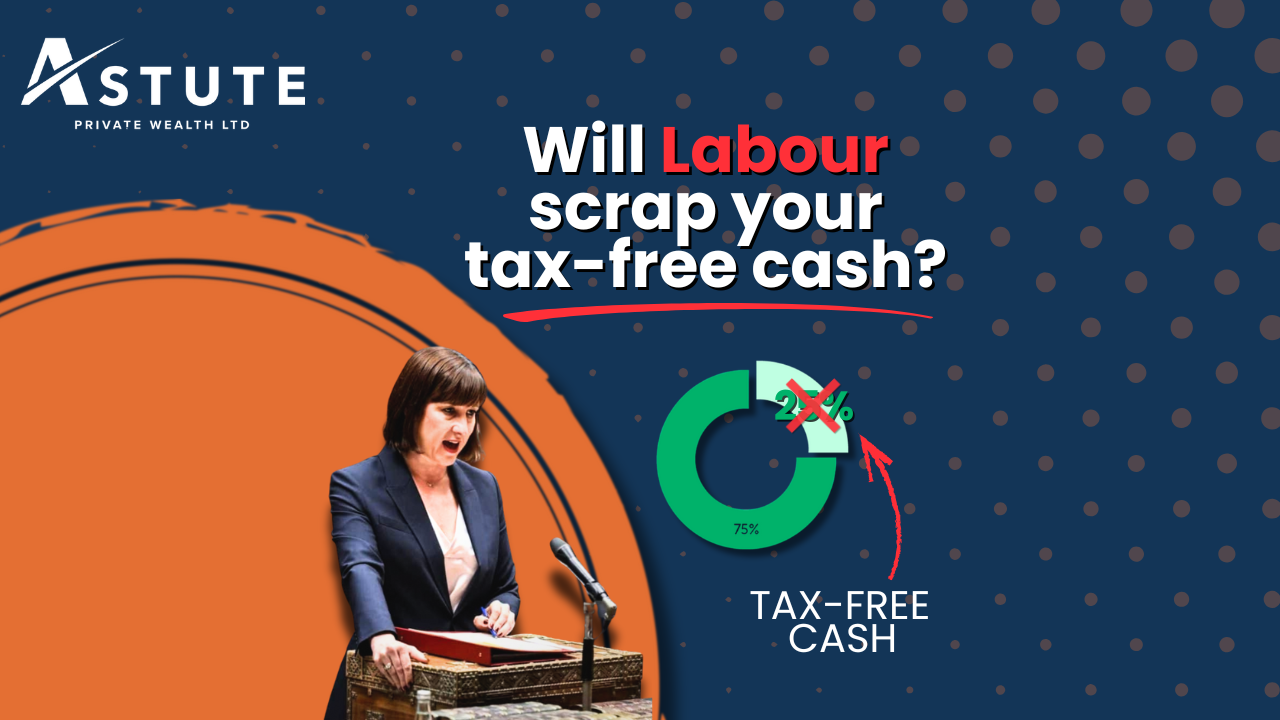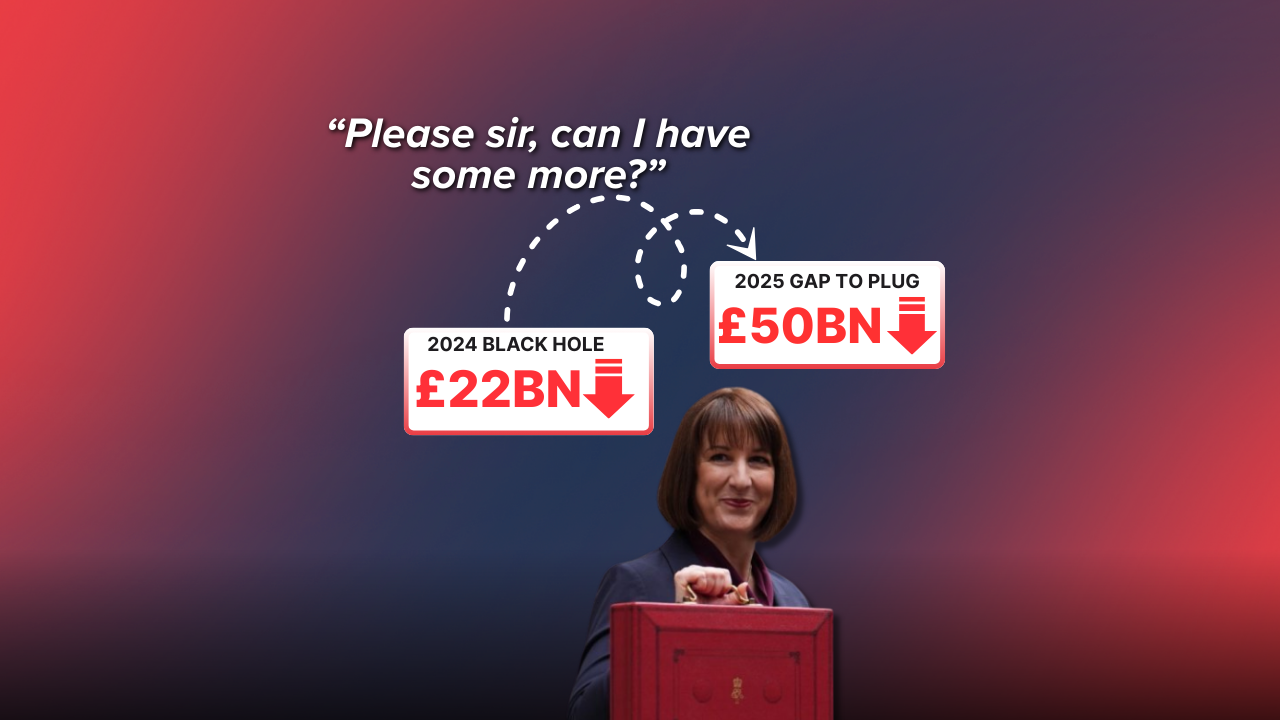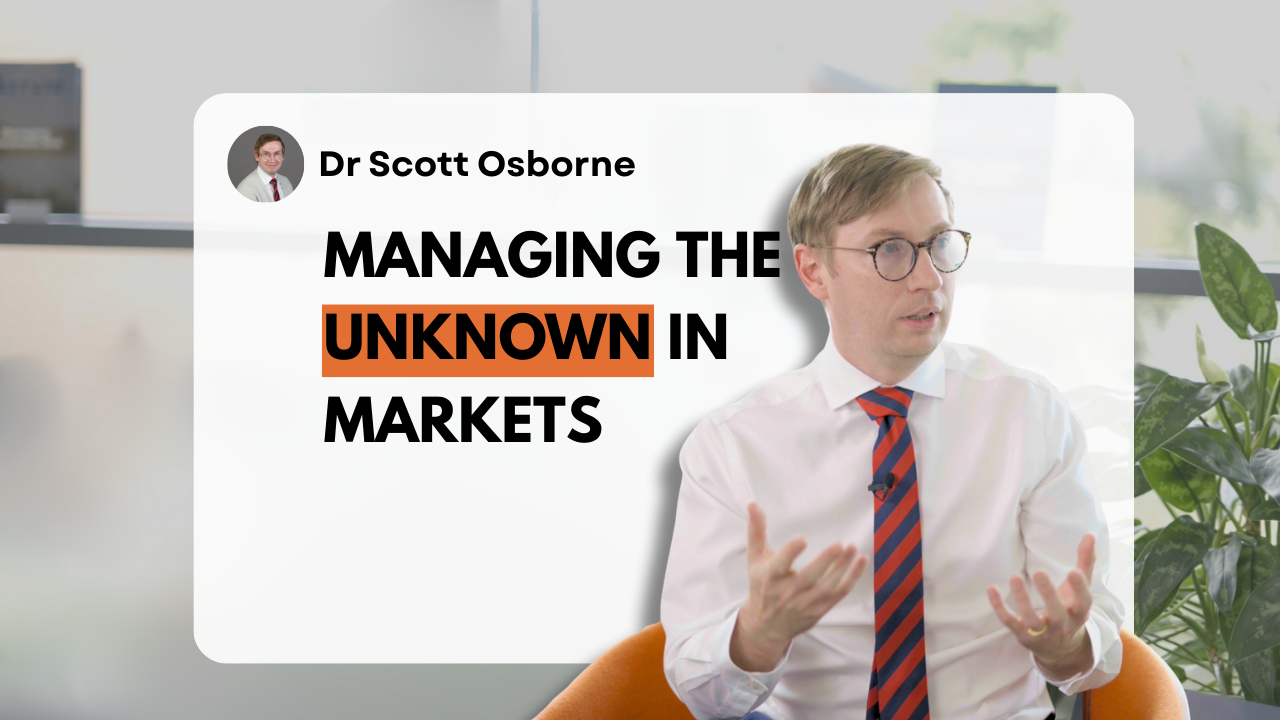
The Chancellor, Rachel Reeves, is under pressure to balance the books, and one of the most popular queries we have received from our clients in recent weeks is about the possibility of cutting back on the 25% tax-free lump sum that’s been a cornerstone of the pension system for decades. In this video, we’ll unpack what’s going on, and we’ll touch on some of the reasons why you should, and why you shouldn’t take your tax-free cash.
Hello and welcome to the latest Insightful Planning with Astute video. I’m Elliot Unsworth, Head of Client Proposition at Astute Private Wealth, and today we need to talk about pensions, and specifically, whether the government is planning to change the rules on how much of your pension you can take as tax-free cash. This is something millions of people rely on, and if it changes, it could have huge consequences for how people retire.
Before we get into it, if you already have the benefit of working with Astute and have questions after watching this, please don’t hesitate to get in touch with your Financial Planner. If you’re new to us, we’ve left a link below this video to help guide you to the right place.
Right now, the rule is pretty straightforward: from age 55, rising to 57 in 2028, you can usually take up to a quarter of your pension pot as a lump sum completely tax-free, subject to certain limits and maximums. The rest, if you draw it, is taxed as income.
For many people, that tax-free cash is one of the big attractions of saving into a pension. It’s often used to clear a mortgage, to help children buy their first home, to fund a once-in-a-lifetime holiday, or simply provide a financial cushion in the early years of retirement. And it’s worth remembering that pensions are already heavily tied up with tax rules. You don’t get complete free access to them like an ISA. So, the 25% lump sum has always been seen as a fair trade-off for the restrictions.
So why is the government even looking at this? The simple answer: money.
The Treasury spends tens of billions of pounds every year on pension tax reliefs. And while the tax-free lump sum is very popular, it’s also expensive, particularly for those with larger pension pots, who can end up taking six-figure sums tax-free.
From a political perspective, cutting the lump sum allowance is attractive because it raises revenue quickly without directly touching the basic State Pension. And let’s be honest, most governments prefer to tinker with private pension rules rather than take the risk of being accused of attacking state benefits.
Rachel Reeves is under pressure to show she can balance the books and keep her fiscal rules; you can see our video here exploring the potential targets for changes to raise tax revenue. That’s why, according to recent reports, this lump sum is very much on the list of potential changes. Having said that… we all expected that this might happen in 2024, and it came to nought. Savers, however, acted on this speculation last year, with reports from Saga showing that there was a huge increase in savers accessing their tax-free cash: up 29.1% in 24/25 compared to 23/24. Nevertheless, before going any further, it is important to highlight that, at this stage, this commentary is based purely on conjecture.
But here’s where the danger lies. People have built retirement plans around this 25% lump sum for years. So if you’re 55, 60, or even 65 now, chances are you’ve factored that money into how you’ll pay off debts or fund big retirement goals. If the rules change, and suddenly you can’t take as much tax-free cash, it could create serious financial pressure. Imagine someone planning to pay off the last chunk of their mortgage with a £100,000 lump sum and then discovering they’ll only get £60,000 or £70,000 tax-free, with the rest taxed at income rates. That’s a massive difference.
It also risks being unfair between generations. Some people who’ve already taken their lump sum would be unaffected, while others just a year or two younger could lose out. And that kind of inconsistency tends to create a lot of anger.
Now, an important point here is history. When governments have changed pension rules in the past, they have never applied reductions retroactively. Even back in 2006, on what was called “A-Day,” when all the different pension regimes were simplified into a single system, people who had rights under the old rules were protected. In fact, a whole suite of “protections” was created so savers didn’t lose out on benefits they had already built up. The pattern ever since has been the same: when tax-free cash has been capped or restricted, protections have been given to people who had already earned those rights. So, while there’s no guarantee that the same approach would be taken again, history strongly suggests that changes would only affect future entitlements, not the lump sum rights you already have.
That doesn’t mean there won’t be disruption. It just means that if changes do come, they’ll likely apply to future contributions or future growth, rather than ripping away what’s already in your pot.
The temptation is to draw your tax-free cash now on the basis that the entitlement may be reduced tomorrow. If people hear rumours that the lump sum might be cut, they may rush to take money out earlier than they otherwise would. That could leave them with less invested for retirement and, ironically, make their long-term financial position worse.
There’s another angle here that often gets overlooked. While the 25% lump sum is popular, taking it isn’t always the smartest move financially. When your money is inside your pension, the capital itself is completely tax-free. The investments grow free of income tax and free of capital gains tax. In many ways, that makes a pension more like a super-ISA.
So, when you withdraw a big chunk of tax-free cash, you’re effectively lifting money out of this protected, tax-free environment and moving it into a normal bank account or investment account where any future growth could be taxable. It’s a bit like taking a huge amount out of your ISA and putting it into a taxable account instead.
For some people, say if you’re paying off a mortgage or funding something essential, that trade-off makes sense. But for others, especially if the cash is just going to sit in a low-interest account, it could actually make you worse off over the long run.#
What Should You Do?
So, what should you do about it? First of all, don’t panic. Changes to the tax-free cash entitlement are mere conjecture at the time of speaking; we cannot advise on rumour. Furthermore, as we have said, history suggests governments are very reluctant to take rights away people already hold.
What you can do is review your retirement plan. Ask yourself:
· How much of my pension do I expect to take as a lump sum?
· Do I actually need it as cash, or is it better left invested within the pension wrapper?
· And if the rules change, what alternatives do I have?
For some, it might mean looking at ISAs or other savings as a more flexible backup. For others, it might mean reconsidering how much income you want to draw directly from your pension, rather than banking on that big tax-free sum.
And of course, this is exactly the kind of scenario where proper financial planning comes in. Whether you should or shouldn’t take your tax-free cash is specific to you and your personal circumstances. And that’s why talking to a Financial Planner, who can help you model different outcomes and scenarios, can ensure you avoid being caught off guard.
Remember: just because you can take your lump sum, doesn’t always mean you should. Keeping money inside the pension often means keeping it in one of the most tax-efficient accounts you’ll ever have. As a last note, it is worth highlighting that HMRC, concerned about the rise in tax-free cash withdrawals, has recently warned that payment of tax-free cash lump sums cannot be undone. Both HMRC and the Financial Conduct Authority have issued a reminder that people should think very carefully about making this sort of irreversible decision ahead of the budget.
Thanks for watching. If you found this helpful, don’t forget to like, subscribe, and share it with anyone you know who’s thinking about their pension right now. And I’ll keep you updated as soon as we know more.


